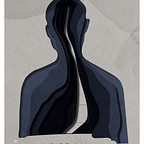We live in a world where the identity plays a significant part in our life. The society taught us that our identity is what matters the most to us.
It is inarguably true that one’s identity is a significant part of being a human and that we do not simply afford to lose it.
Then, the vast growing technology and the media was introduced to us. We started expressing ourselves more than ever. Our will to validate our identity with a help of the media became increasingly significant.
However, the internet with its algorithms is being designed to show us the things we only prefer to see.
In the article, “Everybody’s soapbox”, Krishnakumar explained it as“This moves us very quickly towards a world in which the Internet is showing us what it thinks we want to see but not necessarily what we need to see. I think we really need the Internet to be that thing that we all dreamed of it being. We need it to connect us all together. We need it to introduce us to new ideas and new people and new perspectives. And it is not going to do that if it leaves us all isolated in a Web of one”.
If we are not challenged by people who have different identities than us, we stop being open-minded.
We start to hold onto one belief and we begin to imagine the world as how we see it from our phone screen.
The blue whale challenge is one example. The victims are usually selected and targeted by people who think that the victims are likely to be lured in.
A single teenager just like many teenagers faces an identity crisis. That is why the people behind the computers are using that to spot and target the teenagers because those teenagers are not exposed to useful information such as the warning of the blue whale challenge.
When our internet is specifically customized for our preferences, we only tend to connect with people who share the same identity with us. People find the media to be more persuasive if it validates their existing beliefs.
The downfall is our beliefs are not being challenged by people who have different beliefs.
It is inarguably true that the internet offered us the comfort of a fast connection. Nevertheless, we are starting to believe that our identity is one specific thing rather than many, and beginning to view the people who have different identities as aliens. That same concept is feeding one-sided viral media that causes conflict in social media.
As Krishnakumar says “The Internet has opened new ways of forming, finding and joining ever-smaller tribes that we never even knew we belonged to, and stuffing ourselves full of evidence to harden the conviction. We are therefore seeing the fragmentation of singular, stable identities — like membership of a political party — and its replacement by ever-smaller units of like-minded people. Such tribalism is ultimately damaging to democracy because it has the effect of magnifying the small differences between us, and transforming them into enormous, unsurpassable gulfs.”
The same way the internet creates a filter bubble for us, our own attachment to our so-called valuable identity puts us in an identity bubble that prevents us from seeing every other human as equal.
Instead, we are starting to concentrate on one specific definition of our identity which could be nationality, gender, and political reference and that causes us to see the other people who support different beliefs as enemies.
The most important identity that we forget to embrace is that the identity of a human. Once we start to include “human” in our definition of our own identity, we become immune to the part of the viral media that are turning us against each other.
